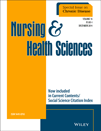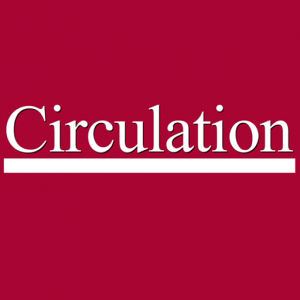 The week at Retraction Watch featured a number of legal cases by scientists trying to suppress criticism about their work. Here’s what was happening elsewhere: Continue reading Weekend reads: Reviewer comments unmasked, the problem with top journal editors, originality an illusion?
The week at Retraction Watch featured a number of legal cases by scientists trying to suppress criticism about their work. Here’s what was happening elsewhere: Continue reading Weekend reads: Reviewer comments unmasked, the problem with top journal editors, originality an illusion?
Researcher loses second bid to quash Diabetes expressions of concern

It hasn’t been a good week for scientists going to court to silence criticism of their work.
Yesterday, PubPeer won a near-complete victory in a case seeking the identities of their commenters. And also yesterday, a Massachusetts judge struck down — for the second time — a request by Mario Saad to remove expressions of concern about four of his papers in Diabetes.
In his ruling, Judge Timothy Hillman wrote: Continue reading Researcher loses second bid to quash Diabetes expressions of concern
Sun sets on Sun Yat-sen University cell bio paper
 Researchers at Sun Yat-sen University in China have lost a paper in the Journal of Cell Science for “inappropriate figure manipulations,” which they blame entirely on the first author.
Researchers at Sun Yat-sen University in China have lost a paper in the Journal of Cell Science for “inappropriate figure manipulations,” which they blame entirely on the first author.
According to the notice, three figures were “inappropriately modified” — cells or nuclei were moved, and the edges of cell images were trimmed. The researchers place the responsibility on first author Liping Chen, claiming that “her co-authors were completely unaware.”
The modifications didn’t affect the conclusions, the note says, but after an investigation by Sun Yat-sen University, the journal decided to retract the paper. Liping Chen says she “regrets the inappropriate figure manipulations,” according to the note.
Continue reading Sun sets on Sun Yat-sen University cell bio paper
Judge rules most of PubPeer’s commenters can remain anonymous

PubPeer won a near-complete victory in a Michigan court today.
A judge has agreed to allow the site to protect the identities of all but one of its anonymous commenters, after a cancer researcher demanded the site release the names of those who have critiqued his papers.
For one of the comments on the site, the judge has asked to hold another hearing on March 19.
After the work of Fazlul Sarkar of Wayne State University appeared on the post-publication peer review site, he wasn’t happy about it. In October, he sued the site’s commenters, demanding that PubPeer release the names of his accusers. Sarkar, who has not been found to have committed research misconduct, claims he lost a lucrative job offer at the University of Mississippi as a result of the posts.
In December, PubPeer’s attorneys asked the judge to dismiss the motion; today, Hon. Sheila Ann Gibson of the Wayne County Circuit Court agreed to do so for all but one comment.
Alexander Abdo of the American Civil Liberties Union, who represented PubPeer in this case, told Retraction Watch: Continue reading Judge rules most of PubPeer’s commenters can remain anonymous
Psychology retractions have quadrupled since 1989: study

Marc Hauser. Dirk Smeesters. Diederik Stapel.
Psychology has been home to some of the most infamous cases of fraud in recent years, and while it’s just a few bad apples who are spoiling the bunch, the field itself has seen an overall increase in retractions, according to a new paper by Jürgen Margraf appearing in Psychologische Rundschau and titled “Zur Lage der Psychologie.”
That increase, Margraf found, is not entirely due to its most well-known fraudsters. Here’s the relevant figure:
Continue reading Psychology retractions have quadrupled since 1989: study
Diabetes researcher won’t give up court fight to quash expressions of concern

Apparently, you can’t keep Mario Saad down.
The researcher, who had 12 figures in a paper corrected this week, was dealt a setback last week when a judge denied his motion to remove expressions of concern on four of his papers in the journal Diabetes, saying that would have amounted to prior restraint — essentially, censorship (a no-no, thanks to the First Amendment).
Saad and his attorneys, however, were undeterred. They filed a motion for reconsideration just four days later, along with a brief, arguing: Continue reading Diabetes researcher won’t give up court fight to quash expressions of concern
Second exercise study retracted in four-paper pileup
 We recently wrote about three papers on heart health and exercise that came under fire for reporting the same trial in three different ways. Actually, make that four ways (so far).
We recently wrote about three papers on heart health and exercise that came under fire for reporting the same trial in three different ways. Actually, make that four ways (so far).
The Wiley journal Nursing and Health Sciences has retracted a fourth paper from the group, saying the “main study” was “previously published.” The notice mentions all three previous papers, one of which has already been retracted and another withdrawn from publication.
Here’s the notice for “Can the transtheoretical model motivate patients with coronary heart disease to exercise?”: Continue reading Second exercise study retracted in four-paper pileup
PLoS ONE mega-correction, but no retraction, for researcher who sued diabetes journal

PLoS ONE has just issued a 12-figure correction on a paper by Mario A. Saad, who sued the American Diabetes Association unsuccessfully in an attempt to prevent it from retracting four papers in its flagship journal Diabetes.
The corrections include taking out Western blots copied from another Saad paper, as well as several figures where the bands were “misplaced.”
PubPeer commenters suggest this may not be enough, calling seven additional figures into question. Continue reading PLoS ONE mega-correction, but no retraction, for researcher who sued diabetes journal
Catalyst for change: grad student catches error in chem experiments, prompts retraction
 ACS Catalysis has retracted a 2012 research letter from a chemistry lab that discovered an error in their experiments.
ACS Catalysis has retracted a 2012 research letter from a chemistry lab that discovered an error in their experiments.
According to last author Rory Waterman at the University of Vermont, an undetected reaction caused his lab to mistakenly mischaracterize the products of an iridium catalyst. The diligence of a graduate student brought it all to light, he noted: “In short, it was the ability of one of my group members to be a very good scientist.”
The letter, titled “High Activity and Selectivity for Silane Dehydrocoupling by an Iridium Catalyst,” was published in February. It has only accumulated 5 citations, according to Thomson Scientific’s Web of Knowledge.
According to the retraction notice: Continue reading Catalyst for change: grad student catches error in chem experiments, prompts retraction
Heart journal issues expression of concern after fraud report
 The American Heart Association’s journal Circulation has issued an expression of concern for a paper about the molecular underpinnings of arrhythmias that was co-authored by a biomedical engineer who committed fraud on a massive scale.
The American Heart Association’s journal Circulation has issued an expression of concern for a paper about the molecular underpinnings of arrhythmias that was co-authored by a biomedical engineer who committed fraud on a massive scale.
According to an investigation by the Office of Research Integrity (ORI), former Vanderbilt engineer Igor Dzhura faked nearly 70 images and drastically over-estimated the number of experiments he conducted. He was banned from receiving federal funding for three years.
The fraud has resulted in six retracted papers, Dzhura has agreed to retract six papers, which have been cited more than 500 times. [Ed. note: at this time, only one paper has actually been retracted]
Continue reading Heart journal issues expression of concern after fraud report